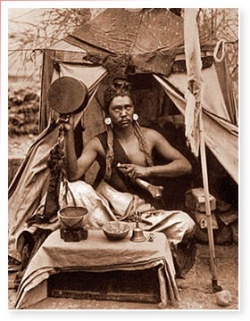Difference between revisions of "སྟོབས་"
| Line 7: | Line 7: | ||
* ''Skt.'' {{SanskritBig|[[बलम्]]}}, [[bala]], {{Color|#006060|''Pron.:'' [[bala]]}}. | * ''Skt.'' {{SanskritBig|[[बलम्]]}}, [[bala]], {{Color|#006060|''Pron.:'' [[bala]]}}. | ||
| − | From {{Color|#006060|''Sanskrit:''}} power, strength, might, vigour, force, validity | 'forcibly, against one's will, without being able to help it' | | + | From {{Color|#006060|''Sanskrit:''}} power, strength, might, [[vigour]], force, validity | 'forcibly, against one's will, without being able to help it' | |
| − | also | or | with | or | force or power of articulation | force considered as a sixth organ of action | the [[Buddhists]] reckon 10 forces, the ascetic [[Śaivas]] four, | + | also | or | with | or | force or power of articulation | force considered as a sixth {{Wiki|organ}} of [[action]] | the [[Buddhists]] reckon 10 forces, the [[ascetic]] [[Śaivas]] four, |
| − | which according to | on | [B.] are | and | Force personified as one of the Viśve-Devāḥ | power of, expertness in | stoutness, bulkiness | also | military force, troops, an army | also shape | body | semen virile | gum | blood | a young shoot | bone | a crow | Crataeva Roxburghii | half-ripe barley | N. of a demon conquered by [[Indra]] | the brother of [[Vṛitra]], in older texts | of an elder brother of [[Kṛishṇa]] (also called [[Bala-deva]], [[Balabhadra]], [[Bala-rāma]]) | N. of a son of [[Varuṇa]] and brother of Surā | of an attendant on [[Skanda]] | of a son of [[Añgiras]] | of a son of [[Parikshit]] | of a son of [[Parijātra]] | of a son of Kṛishṇa | of a lexicographer | also written | of a horse of the Moon | + | which according to | on | [B.] are | and | Force personified as one of the Viśve-Devāḥ | power of, expertness in | stoutness, bulkiness | also | {{Wiki|military}} force, troops, an {{Wiki|army}} | also shape | [[body]] | semen virile | gum | {{Wiki|blood}} | a young shoot | bone | a [[crow]] | Crataeva Roxburghii | half-ripe {{Wiki|barley}} | N. of a {{Wiki|demon}} conquered by [[Indra]] | the brother of [[Vṛitra]], in older texts | of an elder brother of [[Kṛishṇa]] (also called [[Bala-deva]], [[Balabhadra]], [[Bala-rāma]]) | N. of a son of [[Varuṇa]] and brother of [[Surā]] | of an attendant on [[Skanda]] | of a son of [[Añgiras]] | of a son of [[Parikshit]] | of a son of [[Parijātra]] | of a son of [[Wikipedia:Krishna|Kṛishṇa]] | of a {{Wiki|lexicographer}} | also written | of a [[horse]] of the [[Moon]] |
| − | ==Further Information== | + | ==Further [[Information]]== |
* [[Ten paramitas]] | * [[Ten paramitas]] | ||
Latest revision as of 20:27, 9 December 2015
སྟོབས། (Wyl. stobs ) Pron.: tob
From Sanskrit: power, strength, might, vigour, force, validity | 'forcibly, against one's will, without being able to help it' |
also | or | with | or | force or power of articulation | force considered as a sixth organ of action | the Buddhists reckon 10 forces, the ascetic Śaivas four,
which according to | on | [B.] are | and | Force personified as one of the Viśve-Devāḥ | power of, expertness in | stoutness, bulkiness | also | military force, troops, an army | also shape | body | semen virile | gum | blood | a young shoot | bone | a crow | Crataeva Roxburghii | half-ripe barley | N. of a demon conquered by Indra | the brother of Vṛitra, in older texts | of an elder brother of Kṛishṇa (also called Bala-deva, Balabhadra, Bala-rāma) | N. of a son of Varuṇa and brother of Surā | of an attendant on Skanda | of a son of Añgiras | of a son of Parikshit | of a son of Parijātra | of a son of Kṛishṇa | of a lexicographer | also written | of a horse of the Moon
